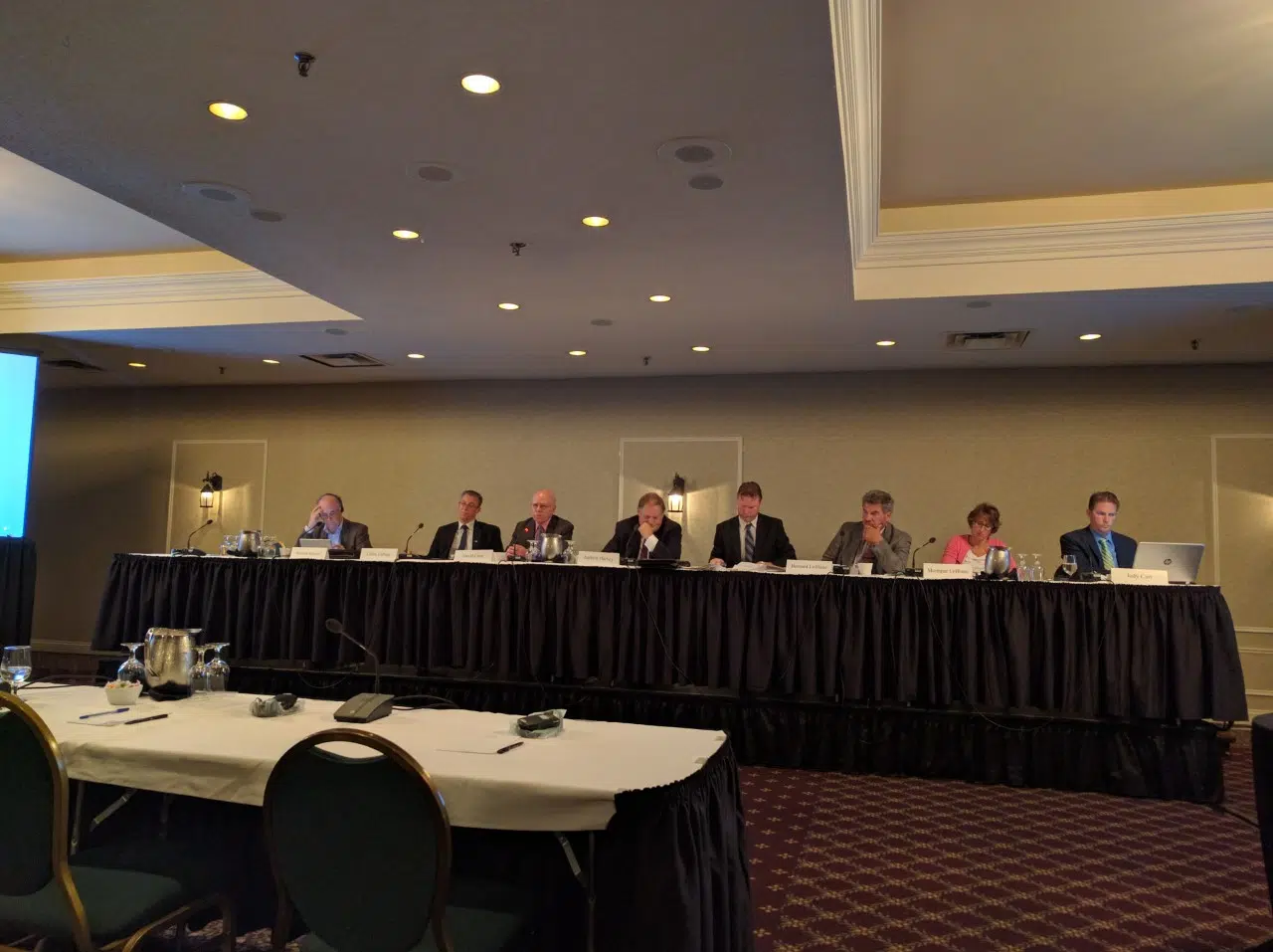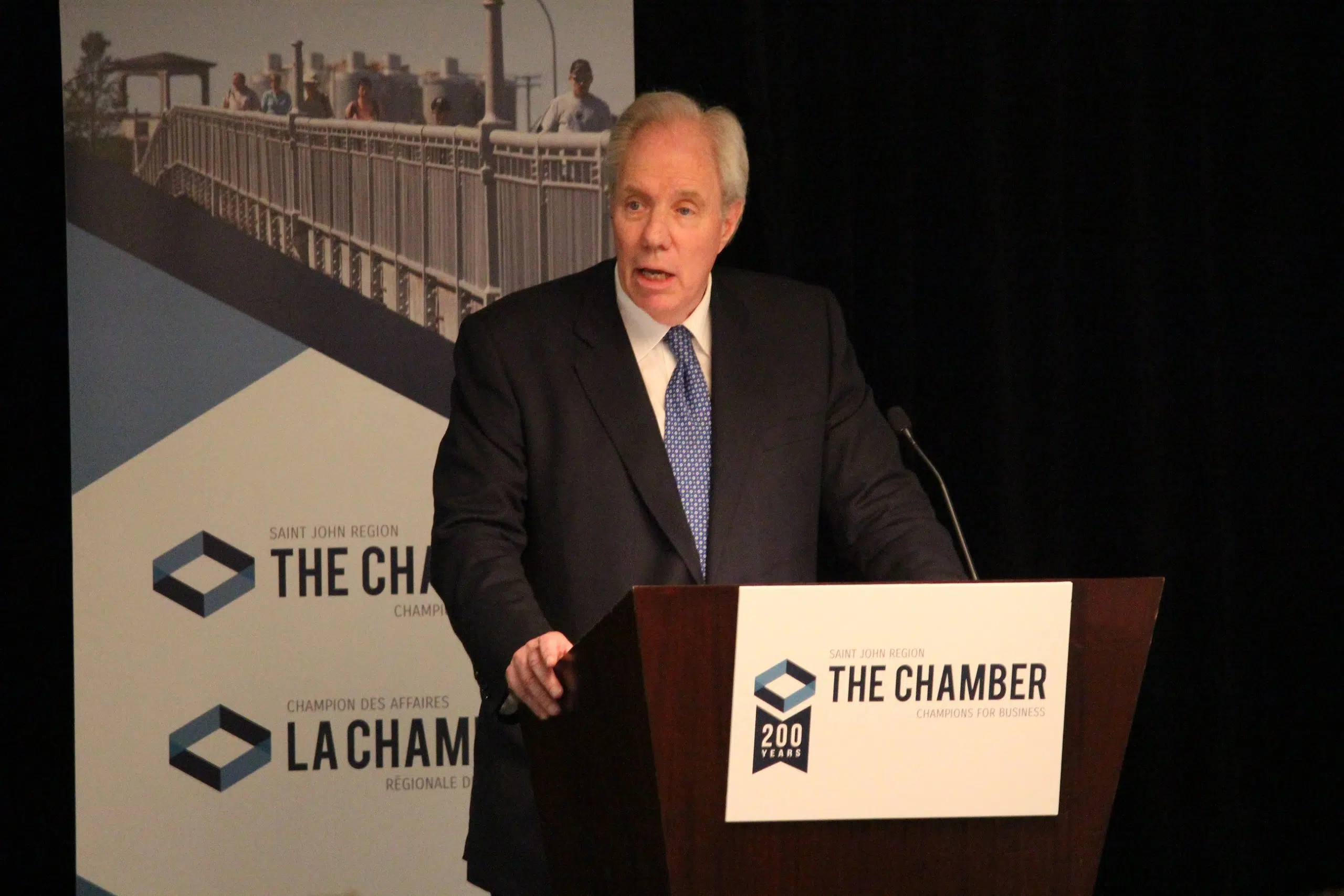J.D. Irving has told the New Brunswick climate change committee that future targeted reductions in greenhouse gas emissions would come with a big price-tag for the conglomerate making it, as a result, no longer competitive.
President Jim Irving delivered the presentation, saying that energy is a big cost for them with JDI spending over $100-million on electricity last year alone and Irving Paper the single largest electricity consumer in the province.
“Manufacturing is energy intensive and trade sensitive,” says Jim Irving. “Our manufacturing facilities in southern NB consume over 5.5-million BTUs of natural gas every year, or, enough to heat 60,000 homes annually.”
According to the presentation, JDIs pulp and paper mills already surpass the greenhouse gas emissions target reductions set by the provincial and federal governments for 2030 — having invested over $115-million in energy efficiency projects at those operations since 1990 which cut greenhouse gas emissions by almost 50-percent.
Irving says they believe future reductions will be tough to do.
“Lots of countries can talk about the upside of having a lot of wind turbines or renewables, but we’d better be calculating the cost in energy intensive businesses.”
Irving was asked for his thoughts on a carbon tax at the consumer level:
“For a homeowner to spend $10,000 to do this or that, how are we going to make it attractive?” he asks. “I think the tax system maybe is a better way to encourage everybody — not additional tax, tax incentives that allow you say, oh if i spend this money I get a tax deduction as opposed to additional taxes.”
The committee on climate change is holding hearings across the province and are in Saint John for two days before going back to Fredericton for the last two sessions.
The committee is responsible for consultation on the discussion guide Building A Stronger New Brunswick Response to Climate Change.








